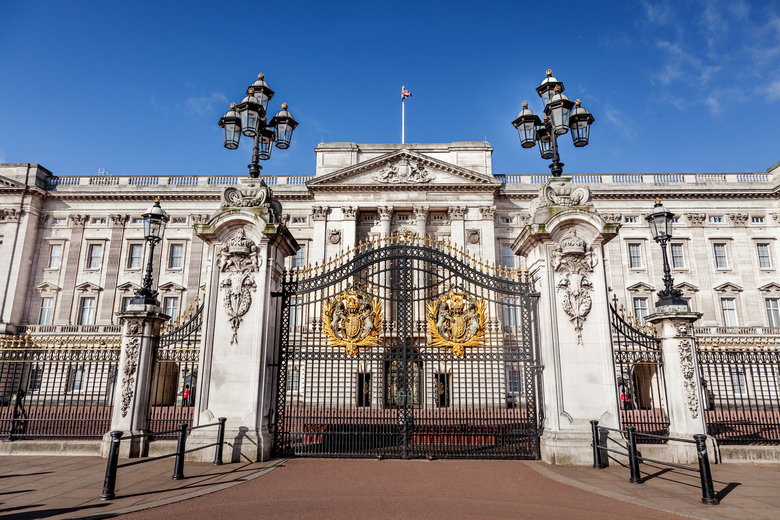
The release of the so-called palace letters has led to renewed calls for an Australian republic, despite them revealing that Prime Minister Gough Whitlam was sacked in 1975 without the knowledge of the Queen.
More than 200 letters containing intimate correspondence between Buckingham Palace and the then Governor General John Kerr were released by the National Archives on Tuesday after a court battle launched by historian Jenny Hocking.

Writing to Queen’s private secretary Martin Charteris on November 11, the day of Mr Whitlam’s dismissal, Mr Kerr wrote, “I should say I decided to take the step I took without informing the palace in advance because, under the Constitution, the responsibility is mine, and I was of the opinion it was better for Her Majesty not to know in advance, though it is, of course, my duty to tell her immediately.”
Mr Charteris replied on November 17: “If I may say so with the greatest respect, I believe in not informing the Queen of what you intended to do before doing it, you acted not only with Constitutional propriety, but also with admirable consideration for Her Majesty’s position.”
Mr Charteris admitted to not being “very well versed” in the Australian Constitution but said Mr Kerr’s actions “cannot easily be challenged for a constitutional point of view however much the politicians will, of course, rage”.
In a letter to Mr Charteris dated November 17 Mr Kerr wrote “my decision was by far the most difficult I have ever made or expect to make” and in another dated November 24 he recounted Mr Whitlam’s words “You may well say God Save the Queen, but nothing will save this Governor-General”, and how Mr Whitlam had referred to his successor Malcolm Fraser as “Kerr’s Cur”. But he added “the rage seems to be to some extent subsiding”.
Buckingham Palace responds
In a statement late on Tuesday Buckingham Palace said “throughout her reign Her Majesty consistently demonstrated … support for Australia, the primacy of the Australian Constitution and the independence of the Australian people, which these letters reflect”.
“… The release of the letters by the Australian National Archives confirms that neither Her Majesty nor the Royal Household had any part to play in Kerr’s decision to dismiss Whitlam”, the Palace said.
But Professor Hocking said the letters suggested Mr Kerr was in effect taking advice from the palace on his reserve powers and the action he took in dissolving the government.
“Kerr is reporting to the palace on matters that are really integral to the political developments in Australia at the time,” she told ABC radio on Wednesday.
“Much of this is quite improper. The matters of government ought not to be reported back to Buckingham palace in this way.
“There’s no doubt that the nature of these discussions with the Queen through her private secretary clearly had an impact and an influence on Kerr as he made his decision.”
Republican movement ‘gobsmacked’
In a statement Chair of the Australian Republican Movement Peter Fitzsimons said he was “gobsmacked” by the letters.
Mr Fitzsimons said they showed most the dramatic moment in Australian history was being discussed by unelected English officials who knew what was happening before Australia’s elected government did.
He also said despite being the unelected head of state the Queen appeared to have looked away from what was going on.
“If her role is to oversee, she needs to see what his going on, surely?” he said in a statement. “Otherwise what is the point?”
He said ARM polls show 62 per cent of Australians want a republic.
“Let’s get on with it”, he said.
Labor leader Anthony Albanese welcomed the release of the national archives, which temporarily disabled the ANA search function as members of the public rushed online to read them.
Mr Albanese said it remained a “blight on our character as a nation” that a democratically elected government was dismissed and said the actions of Mr Kerr reinforced the need for an Australian head of state.
“The fact that we have waited 45 years for correspondence between the Queen and the Palace, and the Governor-General in Australia, says that there is something very wrong with our structures of government, the fact that someone across the other side of the world was involved and engaged in this process,” he told a media conference.
Shadow Assistant Minister for the Republic Matt Thistlethwaite said the uncovering of the documents had illuminated some of the mystery around a period of historic upheaval for the nation.
He denied it was a blow to the republican movement but said instead it highlighted the need for a “mature and serious discussion”about amending the Constitution.
“Whilst these documents are important historical records that tell the story of our past, an Australian republic is about our future. It’s about recognising that we are an independent nation, with our own culture, our own identity and our own pride in our people and their ability to perform this important role of our head of state,” he told reporters.
Mr Albanese called for funding for the archives to be increased, citing reports that the process leading to their release including the High Court battle had cost more than $2 million.
“It would be appropriate that the funding be increased to cover the costs of the National Archives,” he said.
“The National Archives is a very important part of our institutions and is a guardian of our history.
Comment below to have your say on this story.
If you have a news story or tip-off, get in touch at editorial@governmentnews.com.au.
Sign up to the Government News newsletter